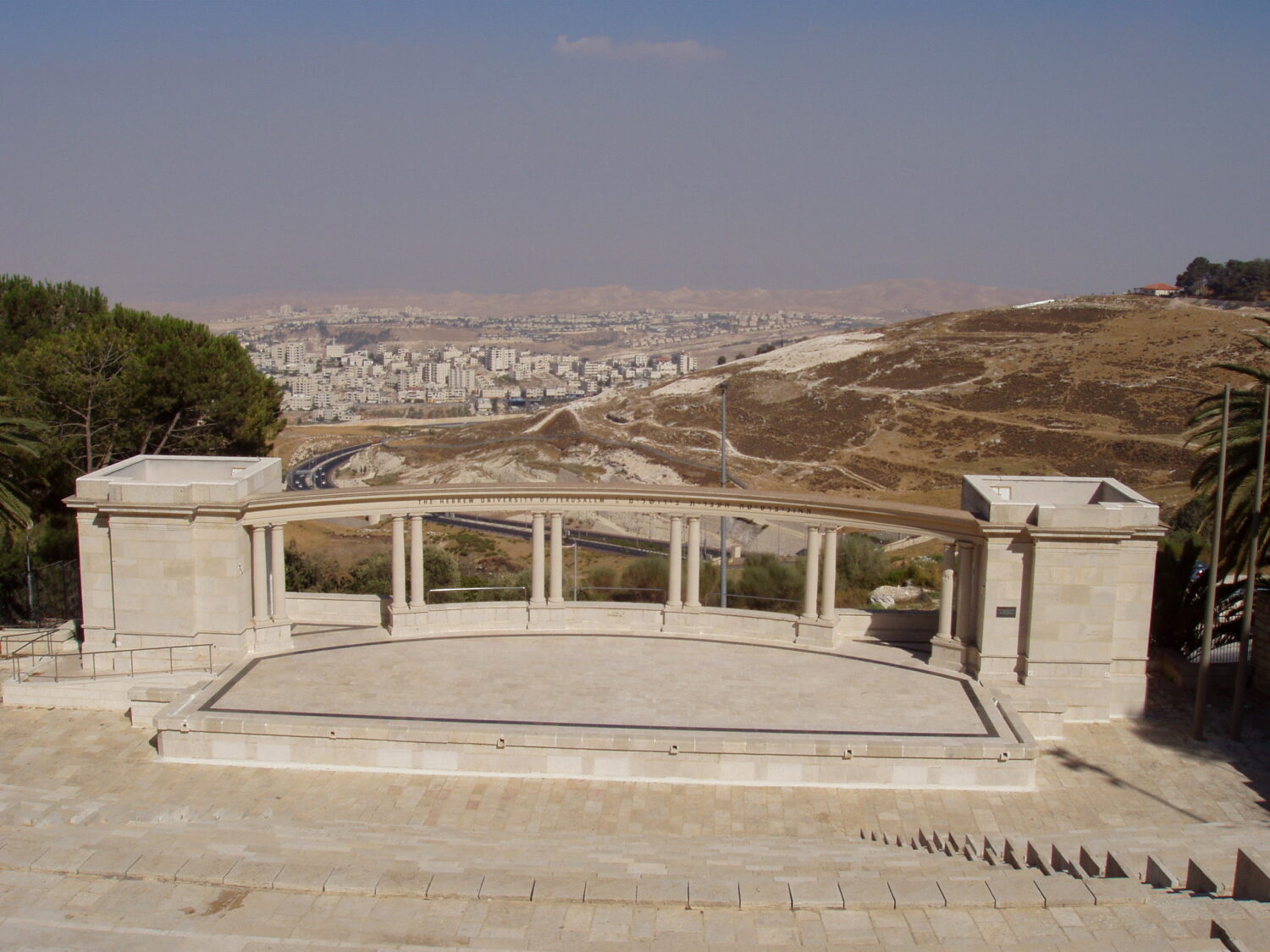
If you’re thinking about making aliyah, you’ve probably asked yourself: Can I really afford to live in Israel?
You’re not alone: One of the biggest worries for people making aliyah is personal finance. And with good reason.
According to the Israeli Central Bureau of Statistics, the average monthly salary in Israel is just over 11,000 NIS (11,175 to be exact). That’s equivalent to $3,192 per month.
In the US, the average is $3900.
But it’s not just the fact that salaries are 20% lower (on average) that makes budgeting in Israel a challenge for new olim; day-to-day expenses tend to be much higher in Israel, too.
For example, in Israel, the median new home (usually an apartment) costs $437,000. In the U.S., it’s $226,800.
If you’re making aliyah from New York or New Jersey, odds are your current home is worth well over that US-median. But then again, if you’re planning to move to Modiin and want a four-bedroom home, good luck finding one for less than $700,000 (and closer to $1,000,000 in the popular-with-olim neighborhood of Buchman).
Food costs in Israel are higher, too. Meat and chicken run about 10% more per pound (or the kilo equivalent), based on my own price book data, and dairy is 25 – 30% more. The average cost of a box of cereal – on sale, at Israel’s Aldi equivalent (Rami Levi) – is 15 NIS, or $4.29. (In-season produce, on the other hand, is significantly less. I bought 5 red peppers yesterday for less than $1.50 total!)
And don’t forget about the cost of buying (and driving) a car in Israel. Thanks to high import taxes, a new vehicle can run you two times what you’d pay in America. The starting MSRP on a 2019 Toyota Camry LE Hybrid, for example, is $28,400 in America. In Israel, it’s $52,089.
To fill up your new tank, assume you will pay about 7 NIS per liter (4 liters is roughly 1 gallon). We drive a Chevy Cruise, with a 15.6 gallon (60 liter) tank. In Israel, it costs me 390 NIS ($113.75) to fill the tank from empty. In America – where the average cost of gas in August was $2.71/gallon, I would pay $42.28 for the same fill-up.
I know all this data can sound daunting. And there is a lot more where this came from.
But hear me when I say: Fear about your budget doesn’t mean you can’t afford to make aliyah.
Because despite higher costs and lower salaries, there are – thankfully – a number of areas where you can spend significantly less money in Israel than you do in the US. (And no, I’m not just talking about cucumbers and tomatoes.)
Depending on your stage in life and the size of your family, you may find that these savings are so significant that not only can you afford to live in Israel, but that living here is less expensive than living in America.
#1. Communication – Cell Phone
When we made aliyah two years ago, we had a pretty basic AT&T cell phone plan for me, my husband and our son. We had 10 GB of data (combined – for all three phones!!!) and we were paying a whopping $120 a month ($40/phone). Today, AT&T offers an unlimited plan for $80 a month – or $45/month per line, if you have at least four lines.
Let’s compare that to our phone bill in Israel.
We now have five lines (mine, my husband’s and our three kids’). Four of those lines have unlimited data; two have 200 minutes of calls to countries outside of Israel; and our 5th (my line), which has “only” 40 GB of data, covers unlimited calls abroad, plus no additional cost for usage (call, text and data) when I’m out of the country. Since I travel to the US multiple times per year, this plan is a must for me.
We pay a total of $64 per month for these five lines.
In the US, three cell phones with only 10 GB or combined data cost us $40 each. In Israel, five cell phones with virtually unlimited data cost us $12.80 each.
That’s an average monthly savings of at least $136 per month, or $1,632 per year, on our cell phone bill alone.
(Note: The phone itself – whether you buy an Android or an iPhone – is still about 25% – 50% more in Israel, thanks to those import taxes. So, you may want to bring the phones with you.)
#2. K-12 Tuition
For new olim, day school / yeshiva tuition is, hands down, one of the biggest areas of savings for families with school-age children (who would otherwise be enrolled in private Jewish schools).
While a full discussion of the educational options in Israel isn’t possible in this post, suffice it to say that your tuition bill for the year in Israel will be less than your tuition bill for one month in America.
For example, we pay about $1,700 per child for their semi-private high school – for the year! Compare that to the $23,500 we would have paid at their high school in Cleveland. Or $30,000+ at similar schools on the East Coast.
(Note: Our sons attend a Bnei Akiva yeshiva in Israel, with extended hours. My 11th grader, for example, goes to school until at least 6:30 pm three days a week (and 5:30 pm the other two days… plus every other Friday!). In other words, the savings aren’t coming from super short days or abbreviated curriculum.)
At elementary school, where the days are much shorter than in American (my 5th grader, for example, finishes at 1:30 four days a week, 2:30 once a week and noon on Fridays – yes, 6 days a week), we pay less than $300 in fees for the year.
While tuition is technically free at public schools, you do pay roughly 1,000 NIS per year in fees for field trips, text books and other activities. Compare that to the $15,775 we would have paid for (private) elementary school in Cleveland.
Just based on 2019 numbers alone, that’s a net difference of over $59,000 per year for my three children.

#3. College Tuition
We struggled mightily with the cost of yeshiva tuition when we lived in the United States; but even more daunting to us was the nagging worry about paying for college!
No, parents don’t have to pay for their kids’ college – and frankly, we might have been able to afford to do so in the end – but it’s certainly something that many parents choose to take on. And suffice it to say, if you live in Israel, taking on that expense is a whole lot more affordable.
For example, tuition at Yeshiva University this year is $44,900 (room and board add another $11,000+ per year). At Rutgers University, tuition for in-state residents this year is $15,407 (room and board add another $12,000).
My husband and I would have needed to save at least half a million dollars to fund three undergraduate degrees. And yet, by 2017, we had managed to save up less than $20,000; so to say we were worried is an understatement.
Compare that cool half a mill to the cost of college in Israel. At the flagship public universities – including Hebrew University, Bar Ilan University and Ben Gurion University – the tuition rate is set annually by the Israeli Council of Higher Education based on the Consumer Price Index.
This year, for example, tuition at the top-rated Hebrew University is 10,259 NIS for Israeli citizens (that’s the equivalent of $2,931). Non-citizens pay a bit more – $3,663.
And by the way, students who have served in the IDF receive a large grant toward the cost of their higher education, which covers as much as 100% of tuition, depending on in which unit the student served.
Tuition at the private IDC International School – which is popular with Americans since they can take their classes fully in English – is more: It’s $13,900 this year.
While I don’t know today where my children will go to college, or what they will study – or how long it will take them to finish their BA (three years is typical, though, in Israel), I do know that in 2019, the net difference between a year at YU and a year at Hebrew U is at least $41,000.
#4. Health Insurance
Last, but certainly not least, are health care costs. Everyone’s comparison points will be different; you may be blessed with a robust employer-provided insurance policy. My husband and I, however, were saddled with the burden of buying our own insurance plan, since we were self-employed.
In 2017 (the last year we lived America), we were paying $1,630 a month for our family’s premium; since our deductible was $5,000 for an individual and $10,000 for our family, we also set aside another $830 a month to cover that deductible – which we inevitably “hit”. (Most of our savings were pre-tax and went into our Health Savings Account.)
And those costs – astronomical though they were – didn’t even account for all the services that weren’t covered, from dentist visits to eye glasses to the doctor-recommended MRI – which we had to pay out of pocket.
Suffice it to say, when it came to our personal finances in America, health insurance was my #1 stressor.
Contrast that to Israel: While the insurance here isn’t perfect, it is much more robust and far less expensive. And most of all, it is guaranteed. I have zero stress that my family will lose our insurance as a result of an illness, or that we will go bankrupt as a result of a health crisis.
All citizens of Israel are guaranteed a comprehensive health plan with a zero premium. The cost of this coverage is paid for by Israel’s “health insurance fund” (bituach briut), which is a part of our payroll taxes.
Our family has also opted to carry supplemental insurance, which costs around $95 a month for the five of us – and covers things like a free pair of eye glasses every year, free preventative dental care for children under 18 (and $10 cleanings for people over 18), and huge discounts on alternative medicine services like chiropractic care and acupuncture.
Our out of pocket costs are extremely low. Prescriptions typically cost $10 or less; visiting the doctor is covered with a one-time per quarter payment of around $5; and I went to Urgent Care two weeks ago for $24.
The line item in my budget for health insurance and out of pocket health carer costs is $146 per month. Compare that to the $2,400 a month we were spending in America. We’re saving $2254 per month, or a whopping $27,000 per year!
While the reason to make – or not make – aliyah shouldn’t only be your bank account, I do think it’s important to talk in really frank terms about how our costs here compare to America. Yes, many thing are far more costly in Israel than in America; and yes, salaries are lower.
But those stats don’t tell the full picture of budgeting in Israel.
That’s why I wanted to use our actual numbers here, to give you a glimpse into how budgeting can work in Israel.
When all is said and done, our monthly budget is $1,900 – $2,200 a month less than when we lived in America.
My costs won’t be the same as your costs, but please know: You more than likely can afford to make aliyah.
Do you live in Israel? How do you find that your budget here compares to your budget in America?
Are you wanting to make aliyah, but worried you can’t “afford” it? Please free to reach out to me, as I’ve been working one-on-one with families to help them to prepare financially for their move.














Leave a Comment